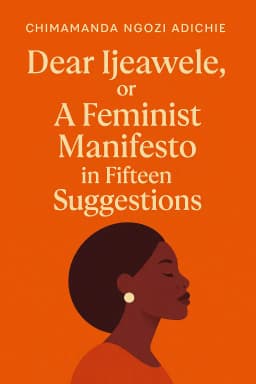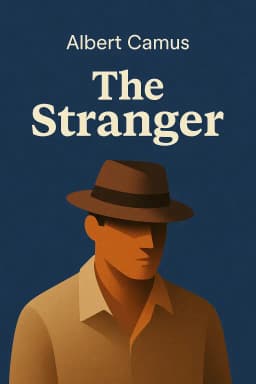
The Price of Brilliance
Excursions into the Very Large and the Very Small
Golden Hook & Introduction
SECTION
Michael: Alright Kevin, I'm going to say a name: Kurt Gödel. What's the first thing that comes to mind? Kevin: Honestly? The guy who made my philosophy 101 professor's head explode. Something about logic being broken? And also, that he was Einstein's walking buddy. Seems like an odd pair. Michael: That's the perfect entry point. Today we're diving into When Einstein Walked with Gödel by Jim Holt. And Holt isn't a physicist or a mathematician; he's a philosopher. That's why the book isn't just about the ideas, but about the brilliant, often tragic, and sometimes downright bizarre humans behind them. Kevin: So it's science and philosophy with a dose of human drama. I like it. The book is really well-regarded for that, right? Making these huge ideas feel personal. Michael: Exactly. It's highly rated precisely because it finds the story in the equations. And there's no better example of that than the friendship between Einstein and Gödel themselves. It’s a story that starts with two men feeling like relics and ends with them questioning if time itself is real.
The Unlikely Friendship That Questioned Time Itself
SECTION
Kevin: Okay, I'm hooked. Set the scene for me. We have Albert Einstein, the most famous scientist in the world, and this reclusive logician, Gödel. Why on earth were they hanging out together in Princeton? Michael: Because they were lonely! By the late 1940s, both men felt like intellectual dinosaurs. Einstein had revolutionized physics, but he could never accept the weirdness of quantum mechanics, the very field he helped create. He felt the new generation of physicists had left him behind. Kevin: He was a 'museum piece,' as the book says. A living legend who disagreed with the current science. Michael: Precisely. And Gödel was in a similar boat. He was a logician, but he was also a Platonist. Kevin: Hold on. What does it mean that Gödel was a 'Platonist'? Like, he thought numbers were floating around in some heaven? Michael: Pretty much! He believed that mathematical truths—like 2+2=4 or the nature of infinity—weren't human inventions. He thought they were real, timeless objects that existed in an abstract realm, and mathematicians were more like explorers discovering them than inventors creating them. To the philosophers of his day, this was seen as incredibly naive. Kevin: So you have the physicist who rejected modern physics and the logician who rejected modern philosophy. No wonder they found each other. Michael: It was a deep intellectual bond. Einstein told people he only went to his office at the Institute for Advanced Study "just to have the privilege of walking home with Kurt Gödel." They were the only two who, as one observer put it, "walked and talked on equal terms." Kevin: Wow. So what did they talk about on these famous walks? The weather? The state of the world? Michael: They talked about the nature of time. And this is where the story gets truly mind-bending. For Einstein's 70th birthday, Gödel decided to give him a very unique present. He dove into Einstein's own theory of general relativity. Kevin: A bold move. It’s like trying to explain The Beatles to Paul McCartney. Michael: Bolder than that. Gödel found something in Einstein's equations that Einstein himself had missed. He discovered a new solution that described a possible universe—a "Gödel Universe"—where the entire cosmos was rotating. And in this rotating universe, time travel into the past was possible. Kevin: You're kidding. He used Einstein's own math to prove time travel was possible? How did Einstein react to that birthday gift? Michael: He was, in a word, "disturbed." Gödel's logic was impeccable. He argued that if you could build a powerful enough rocket ship and take a long enough round trip, you could arrive back at a point in your own past. Kevin: That's a paradox. If you can go back and have a conversation with your younger self, did the past ever really 'pass'? Michael: That was exactly Gödel's point! He concluded that if time travel is logically possible within the laws of physics, then time as we intuitively understand it—this unstoppable river flowing from past to present to future—cannot be real. It must be an illusion. Kevin: And Einstein, the man who first showed that time was relative, was troubled by this? Michael: Deeply. But in his later years, he seemed to lean into it. He once wrote to the widow of a friend, "this separation between past, present, and future is only an illusion, if a stubborn one." For both of them, denying the reality of time might have been a way to cope with their own mortality, a way to believe that everything, in some sense, exists forever in a great cosmic block.
The Dark Side of Brilliance
SECTION
Kevin: That's a mind-bending and beautiful story of friendship. But Holt's book isn't all cozy walks and philosophical chats, is it? I get the sense there's a much darker, more tragic side to these geniuses. Michael: Oh, absolutely. That's the second major theme Holt keeps returning to. For every beautiful idea, there seems to be a tragic human story attached. The book is filled with them. Georg Cantor, who gave us the theory of infinity, died in an insane asylum. And Gödel himself, the great logician, starved to death because he was consumed by a paranoid fear that people were trying to poison him. Kevin: That's horrifying. But the story that always gets me, which Holt covers, is Alan Turing's. Michael: It's one of the most profound tragedies of the 20th century. Here is a man who is, without exaggeration, a triple hero. First, he's a hero of logic. He conceives of the "Turing Machine," the abstract blueprint for every computer we use today. He basically invents the digital age as a by-product of solving a deep problem in mathematics. Kevin: And second, he's a war hero. Michael: A monumental one. During World War II, he was the lead codebreaker at Bletchley Park. He devised the "Bombe" machine that cracked the German Navy's "unbreakable" Enigma code. Historians estimate his work shortened the war by at least two years and saved countless lives. He was instrumental in winning the Battle of the Atlantic. Kevin: So, a hero of logic, a hero of war... what's the third? Michael: A hero of science. After the war, he was already exploring the ideas of artificial intelligence and mathematical biology, decades ahead of his time. He was a true visionary. And how did Great Britain repay this man who saved the nation? Kevin: It's just heartbreaking. They prosecuted him for being gay. Michael: In 1952, he was convicted of "gross indecency" for a consensual affair with another man. He was given a choice: prison or chemical castration. He chose the latter and was subjected to hormonal injections designed to destroy his libido. Two years later, he was found dead, an apple laced with cyanide by his bedside. Kevin: And Holt frames this as the ultimate injustice, right? The society he saved turned on him and destroyed him because of who he loved. Michael: Exactly. It’s the starkest example of the disconnect between a brilliant mind and the often cruel, prejudiced world it inhabits. But sometimes, the darkness isn't something done to the genius. Sometimes, it's a darkness that comes from them. Kevin: What do you mean? Michael: Holt spends a whole chapter on Sir Francis Galton, a Victorian-era polymath. He was a brilliant statistician. He gave us concepts like correlation and regression to the mean—tools we still use every day in science and economics. He was obsessed with measuring everything. He even created a "beauty map" of the British Isles by secretly rating the attractiveness of women he passed on the street. Kevin: That's... creepy. And definitely bizarre. But where's the darkness in that? Michael: The darkness comes from where his obsession with measurement and heredity led him. Galton was Darwin's cousin, and he became convinced that all human traits—from intelligence to character—were inherited. He believed you could improve the human race the same way you breed better horses or cattle. He gave this idea a name: eugenics. Kevin: Eugenics. That's a word that carries so much horror. It's the ideology that fueled Nazi atrocities. Michael: And Galton was its father. He argued that society should encourage the "fit" to have more children and discourage, or even prevent, the "unfit" from reproducing. His "beautiful" statistical ideas, as Holt shows, gave birth to a monstrous and dangerous ideology that led to forced sterilization programs in the U.S. and Europe and provided a pseudo-scientific justification for racism. Kevin: And Holt connects this to today, right? With genetic engineering and designer babies, aren't we facing a new version of Galton's 'dangerous idea'? Michael: That's the chilling modern relevance. With technologies like CRISPR, we are on the verge of being able to edit the human genome. We can screen embryos for genetic diseases. On one hand, this offers incredible hope. On the other, it opens the door to a new, high-tech eugenics. The temptation to "improve" our species is back, and Galton's ghost looms large over that debate.
Synthesis & Takeaways
SECTION
Kevin: So, after all these stories—the beautiful, the tragic, the dangerous—what's the big takeaway from Holt's book? Is it that genius is a curse? Michael: I don't think it's that simple. The deeper insight Holt offers is that we can't separate the idea from the human. We love the purity of a mathematical proof or a physical law, but they are born from messy, flawed, and fragile minds. Einstein and Gödel's friendship was beautiful because of their shared isolation. Turing's genius is inseparable from the persecution he faced. Galton's statistics and his eugenics came from the same intellectual impulse to measure and control the world. Kevin: So the beauty and the horror are two sides of the same coin. We can't just admire the 'truth' of an idea without understanding the human context it came from. Michael: Exactly. And that forces us to be more critical, more compassionate, and more aware of how ideas, even the most abstract ones, have real-world consequences. Holt's book is a journey to the edge of thought, but it constantly reminds us that these thoughts come from people—people who loved, suffered, and sometimes made terrible mistakes. Kevin: It leaves you with a big question: Can you love an idea but condemn its creator? Or does one taint the other? Michael: That's the question Holt leaves us with. We'd love to hear what you all think. Find us on our socials and share your thoughts on this. Can you separate the art from the artist, or the theory from the theorist? Kevin: A lot to chew on. This is Aibrary, signing off.









